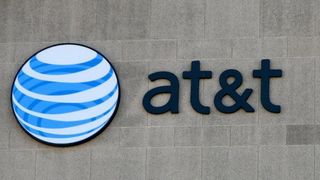AT&T/TW Accuse DOJ of Selective Enforcement

AT&T/DirecTV and Time Warner have told a federal court and, by extension, the Justice Department and Trump Administration, that the fed's case against their proposed merger is "improper selective enforcement of the antitrust laws."
That came in its official response to the U.S. Court of Appeals for the D.C. Circuit following DOJ's suit to block the deal, which was filed in that court.
They said the merger is "a procompetitive, pro-consumer response to an intensely competitive and rapidly changing video marketplace," and that the government doesn't have a legitimate case against it.
Related: Genachowski Doesn't See Government Winning AT&T/TW Suit
Justice said the deal can't go through because the combined company would have the ability and incentive to favor its own owned content. AT&T and Time Warner pointed out that Apple, Google and Facebook have billions of users, combined market cap of two trillion, and are also investing in their own content.
"To challenge a vertical merger, the Government must prove that the merging parties enjoy sufficient market power in their respective markets to cause antitrust concern," they said. "Otherwise, the vertical combination of two companies occupying different levels of the supply chain cannot substantially lessen competition in violation of Section 7 of the Clayton Act. On this threshold issue, the Government cannot meet its burden of proof. This is not a vertical combination of two firms with an imposing market share or anything near it."
They also pointed out that when YouTube TV launched, it did not include any Time Warner networks.
Related: Deal Critics Celebrate DOJ Suit Against AT&T-Time Warner
"The fact that Google, one of the most sophisticated and well-funded companies in the world, launched its video platform without any Time Warner channels confirms not only that the television ecosystem is awash in content, but that Time Warner’s networks are not, in any antitrust sense of the word, essential to attracting and retaining subscribers," they told the court.
They said the deal presents "absolutely" no harm to competition or consumers.
The companies pointed out that Justice and the FCC agreed to allow the Comcast/NBCU vertical merger with conditions enforceable via baseball-style arbitration. They said they fully expected that would be the case with their deal, given that "Comcast is typically the clear pay-TV leader in its local service areas and NBCUniversal owns one of the Big Four broadcast networks."
They also said they were ready to accept the same seven-year arbitration condition for any of the Turner networks, and agree that none of those networks would go dark on any Turner distributor during that arbitration. That, they said, should resolve Justice's concern about the incentive to discriminate or withhold.
"In seeking to block this merger, then," they said, an abrupt change in approach to vertical mergers they can't explain, "the Government is not only departing from established antitrust precedent, but is also shielding rivals from new competition that would greatly benefit consumers."
(Photo via Bill Bradford's Flickr. Image taken on March 4, 2016 and used per Creative Commons 2.0 license. The photo was cropped to fit 16x9 aspect ratio.)
Broadcasting & Cable Newsletter
The smarter way to stay on top of broadcasting and cable industry. Sign up below
Contributing editor John Eggerton has been an editor and/or writer on media regulation, legislation and policy for over four decades, including covering the FCC, FTC, Congress, the major media trade associations, and the federal courts. In addition to Multichannel News and Broadcasting + Cable, his work has appeared in Radio World, TV Technology, TV Fax, This Week in Consumer Electronics, Variety and the Encyclopedia Britannica.

